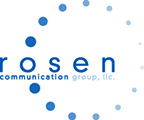Looking for things to throw away so I could clear cabinet space one rainy and cold Sunday afternoon recently, I found a Newsweek article I had clipped in 1994. It was titled “On the road again: Americans love the search so much that the idea of a destination is lost.” If it were to appear today, the headline might read, “Can we really build a new culture inside our company (or in our country)?”
The Employee Experience
Writer Kenneth L. Woodward’s premise was that, unlike ancient people who looked to the heavens as a sacred destination, modern seekers consider scientific discipline and individuality in their quest for meaning. Each moment matters, so on most of our days, work teams fulfill the tribal connection in our search. The Employee Experience reveals the tradition or wisdom that connects lives to something larger.
At work, a secular space, we call this corporate culture. “Work defines our ‘real’ world; we move in secular time and space. The sacred is experienced—if at all—as a private, usually weekend option,” Woodward wrote. “Detached from the sacred, culture has become a human construct we labor to create.”
Work rituals for a reason
Pretty deep thinking for what started as my paper-tossing task, right? As the Newsweek article reported, people always search for meaning, defined by values and by rituals that encourage a sense of harmony with a certain aim.
Communication needs to contribute to the right values and rituals for workplace harmony and a positive employee experience. Excursions to the sacred can take care of birth rituals, marriage, and death. But wait. Those rituals roll into work. A new dependent on health insurance. A name change in the directory. How or whether you even tell employees that a colleague—someone they may know personally or only digitally—has died.
We can bring value to employee experiences that roughly mirror birth, marriage, and death. Employee onboarding, baptism if you will, is earning a fresh approach at many companies in this Millennial world so as to provide relevance and meaning. Agile teams are celebrating milestones that result from a coming together, a partnership, which bears fruit for the tribe. Retirement—ceasing work—is a final life experience at the company that can be quietly gloomy or appreciatively cheerful, which remaining employees witness.
Path for work and culture
Secular and sacred are concepts author Jonathan Haidt explores in “The Righteous Mind.” (He admits that the word “righteous” carries religious overtones to the modern reader, though it comes from a neutral word for “virtuous,” the way to act in accordance with the group.)
He uses “sacredness” to describe what binds individuals into communities and the moral passions people apply to their lives. He writes about “sanctity” as the foundation for what makes a stance either right or wrong on any issue—environment, health care, homeland, welfare, immigration, religion, and whatever else divides partisans in today’s world. Superficially it may appear that no culture succeeds in binding individuals. Yet consider strong subcultures that seize minds in ways that make no sense to people on the other side.
That relates to communication and employee experience how, exactly? We labor to bring people into the corporate culture landscape. Think about that when you develop strategy or messages that declare the “right way” along the path.
I’m glad I had saved that old article. I kept it in my file.

